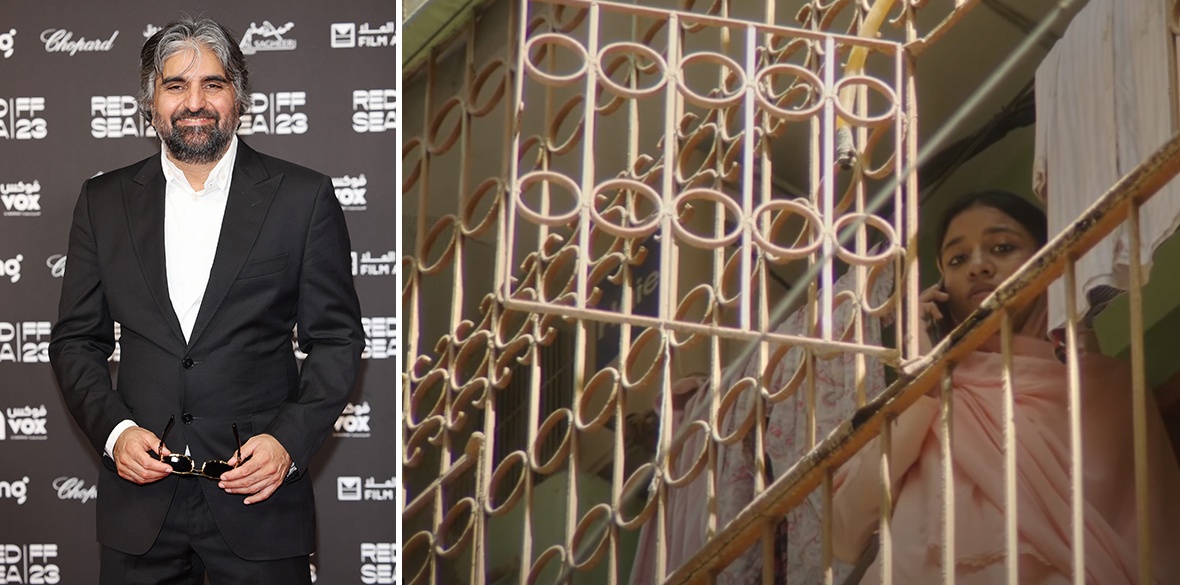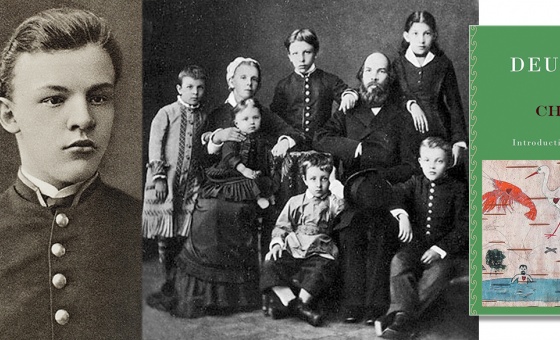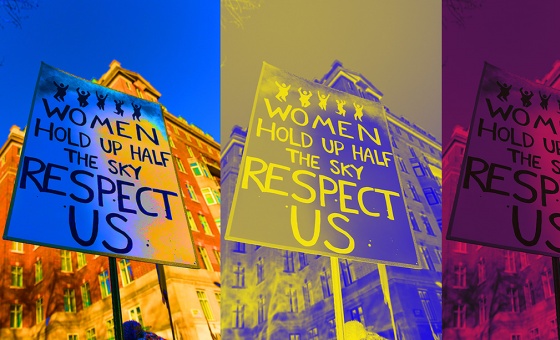This is the last article you can read this month
You can read more article this month
You can read more articles this month
Sorry your limit is up for this month
Reset on:
Please help support the Morning Star by subscribing here
IN a country where cinema had been banned for 35 years, the Red Sea Film Festival has just concluded its third edition. Staged in Jeddah, the festival has rapidly expanded its scope, not doubling but quadrupling its relevance in Saudi Arabia, the Middle East, even in the wider world.
Artistic director Kaleem Aftab has witnessed the evolution of this festival since the first edition. A journalist and film critic with a huge knowledge of Arabic film and a wealth of experience gained from travelling to festivals across the world, Kaleem was initially brought on as a consultant but subsequently invited to become the artistic director.
“I grew up in London. I’m a Muslim, so I understand what it’s like to have different cultures. My parents were Pakistani immigrants; when I grew up, there was a lot of racism in the ’70s and ’80s. I was always code-switching. I can see the necessity of doing that in the Arab world, with cinema, in particular, especially as over the last 20 years Arab cinema has changed and developed. Saudi is a place where cinema was once banned; it has been fascinating working here.”
Do you think about the audience when you are programming?
Always. I only think about the audience. This year, the festival has a title: “Your Story, Your Festival” and that’s because it’s an audience festival. We want the people of Saudi Arabia to connect to the movies that we select. I wouldn’t like to make a European film festival in Asia and the Middle East. I would rather have a festival that looks east.
Did you see the audience changing and the industry in these three years?
Three years is a very short time. We’ll see the audience change over the next years. We’ll see an evolution in terms of numbers. We see more of an appetite for Korean cinema and Iranian cinema. The main thing is finding stories that the audience connect to.
I came to the first edition and my first screening was Fay’s Palette, an independent movie from Saudi about a girl in love with another girl, at her school. It was a midnight screening, but the audience was huge. I saw the passion of the Saudi audience for cinema, and how open it is — wanting to watch any kind of story.
The Saudi audience comes for Saudi films. That’s very exciting for us. And it’s exciting for the industry that, even this year, the Saudi films have been the most popular films. For us as programmers, it means that we can always be bold in our programming choices.
What’s the relation with the censor?
Every film we show is as the director intended. We just select films that are good films, films that are made globally. We’re an international film festival. We look for films around the world and what artists are speaking about and what concerns artists. We’re a festival that always talks about the cultural bridge. We try and represent what is happening in the cinema globally.
Does the festival have a relationship with Hollywood?
Apparently “I snubbed Hollywood,” according to some people this year. But I don’t snub anyone. I’m just reflective of what’s happening. As you can see, many Hollywood stars have turned up to the festival. There are American movies, British movies. Looking at the programme, we have what was interesting to us this year under a theme of “Your Story, Your Festival”; we have been looking in different directions.
You have Palestinian movies. Do you have also Israeli movies or topics connected to Israel?
We look at films from all over the world. We look at all sorts of topics. If you see the programming team, they’re very diverse and from all over the world. I don’t think the people who programme for the festival would accept deciding films on national identity.
My last question is about the Morning Star. Is it true that you used to work for our paper?
In 1993 or ’94, I was in Cuba. It was a special period. I met John Haylett who at the time was the deputy editor, who went on to become editor of the Morning Star. And me being a young 17-year-old with very idealistic principles, I walked up to him and said, “Oh, I’d love to postpone university for a year and come and work at the Morning Star.”
And so I worked in the office for six months at a very key time, after the Berlin Wall had fallen, after the collapse of the Soviet bloc, at the time when liberal democracy was saying it was the end of history — how wrong they were! I’m very pleased always to have kept my relationship with the Morning Star for many years after.
I was a sports correspondent, covering Fulham matches, which was great. I did that for many years. And it’s only because of a lack of time, and the fact that I switched professions and jobs, otherwise I’d still be working for them.










